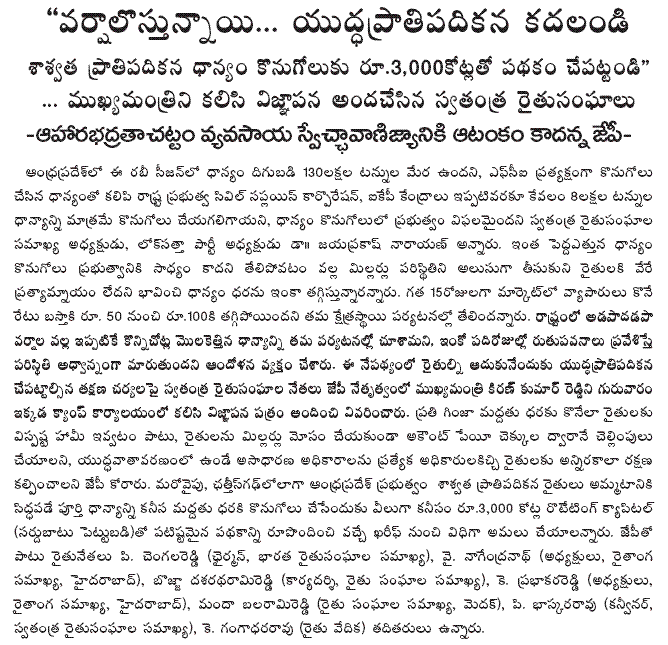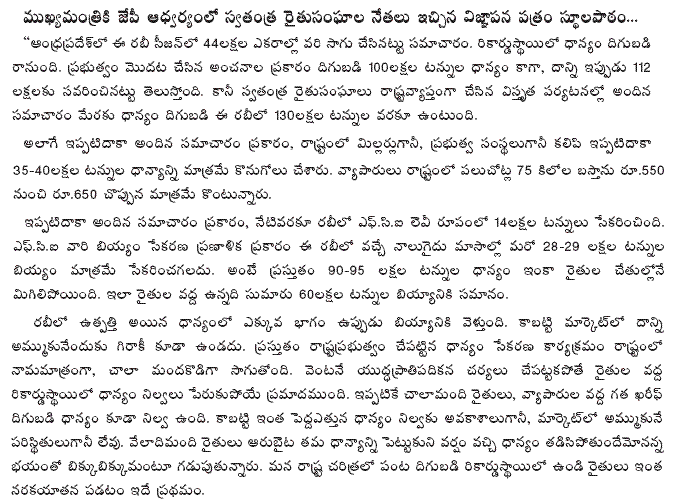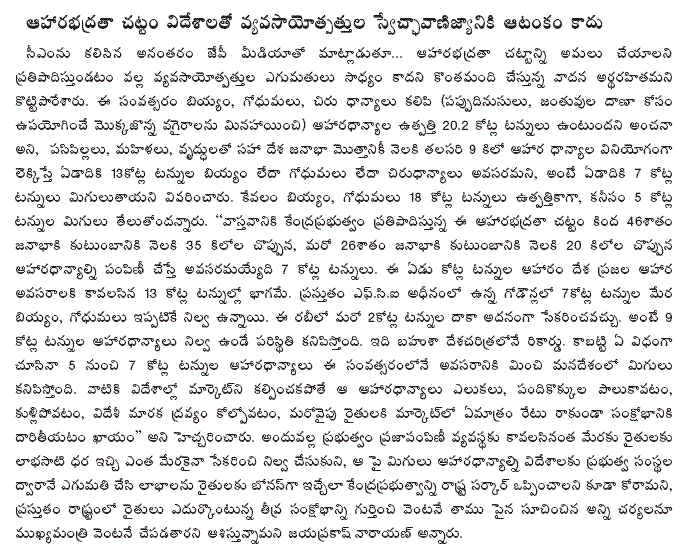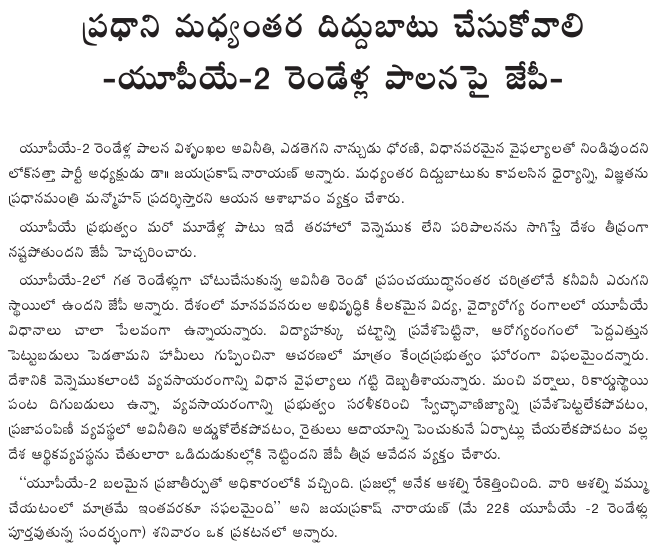Leaders of independent farmers’ organizations today wanted the Andhra Pradesh Government to declare categorically that it would ensure purchase of every grain of paddy offered for sale at the minimum support price, and implement it in practice on a war-footing since monsoon rains are round the corner.
In a representation presented to Chief Minister N. Kiran Kumar Reddy at his Camp Office, the Federation of Independent Farmers’ Organizations pointed out that tardy purchases by Government agencies have emboldened millers to exploit farmers by denying them the MSP.
Dr. Jayaprakash Narayan, President of the federation and the Lok Satta Party, led the delegation comprising Messrs P. Chengal Reddy, Y. Nagendranath, B. Dasaratharama Reddy, K. Prabhakar Reddy, M. Balarami Reddy, P. Bhaskara Rao and K. Gangadhara Rao.
It may be recalled that Dr. JP and other leaders of the federation had extensively traveled in most of the paddy growing districts and studied the situation at the grassroots level before calling on the Chief Minister.
The delegation pointed out to the Chief Minister that millers and Government agencies have so far bought only about 35-40 lakh tons of the estimated 130 lakh tons of rabi paddy output. In addition, farmers and traders have stocks of the last kharif.
The farmers’ leaders suggested that the Government requisition space in schools, colleges and other private buildings to store the record paddy stocks. The IAS officials deputed to districts to supervise paddy purchases and district collectors should be empowered under Treasury Rule 27 to take all measures for rice procurement and storage. Millers should be made to make payments for paddy purchases by account payee cheques to curb underpayment.
To ensure that the farmer gets the minimum support for price for paddy on a permanent basis, the Andhra Pradesh Government should emulate its Chattisgarh counterpart and undertake direct procurement from farmers instead of leaving them to millers’ mercy. It might call for a revolving fund of Rs.3000 crore.
Talking to media after meeting the Chief Minister, Dr. JP said that the proposed institution of the right to food should not be trotted out as an excuse to bar food grain exports and deny a fair price to farmers. The Government could procure all the grain needed for ensuring food security by paying a fair price to the farmer and permit export of surplus to other countries.
Dr. JP pointed out that that the country needs only 13 crore tons of the estimated 20.2 crore food grain production this year, assuming a per capita consumption of 9 kg a month. The proposed right to food security will entail procurement of 7 crore tons only. The Food Corporation of India already has 7 crore tons of food grains in its warehouses and it will be procuring an additional two crore tons of rabi production.
Dr. JP said that the country would be left with a record surplus of 5 crore to 7 crore tons of food grains. If it is not permitted to be exported, food grains will be vulnerable to rodents and rains. State agencies could undertake exports and share the profits with farmers, he added.






